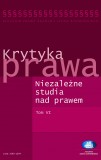Free Movement of Capital and VW Law: A Never Ending Story?
Free Movement of Capital and VW Law: A Never Ending Story?
Author(s): Ratislav FuntaSubject(s): Law, Constitution, Jurisprudence, Business Economy / Management
Published by: Akademia Leona Koźmińskiego
Summary/Abstract: Among the most spectacular decisions in the field of European fundamental freedoms are the judgments of the Court of Justice of the European Union (CJEU) about the “golden shares”. It refers to special rights reserved by Member States concerning privately organised companies in order to have influence in key corporate policy decisions. Usually it is about formerly state-owned and now (partially) privatised companies as well as companies from certain key industries that strongly affect national interests. As an example of such special rights are veto rights on key business issues through which the public sector seeks to secure a special influence on the composition of the governing bodies of the concerned companies. In these situations, the CJEU sees regularly a restriction of the free movement of capital (Art. 63 (1) TFEU), since special state law discourage private investors and therefore is likely to deter investors from other Member States. The Volkswagen (VW) case touches upon a series of questions concerning the scope of the movement of capital in public-private entities. Therefore, it is worth having a closer look at it. The aim of the following considerations is, first, to examine the revised VW Law and then the new version of VW’s Articles of Association and their compatibility with the EU law.
Journal: Krytyka Prawa
- Issue Year: 5/2013
- Issue No: 1
- Page Range: 57-66
- Page Count: 10
- Language: English

